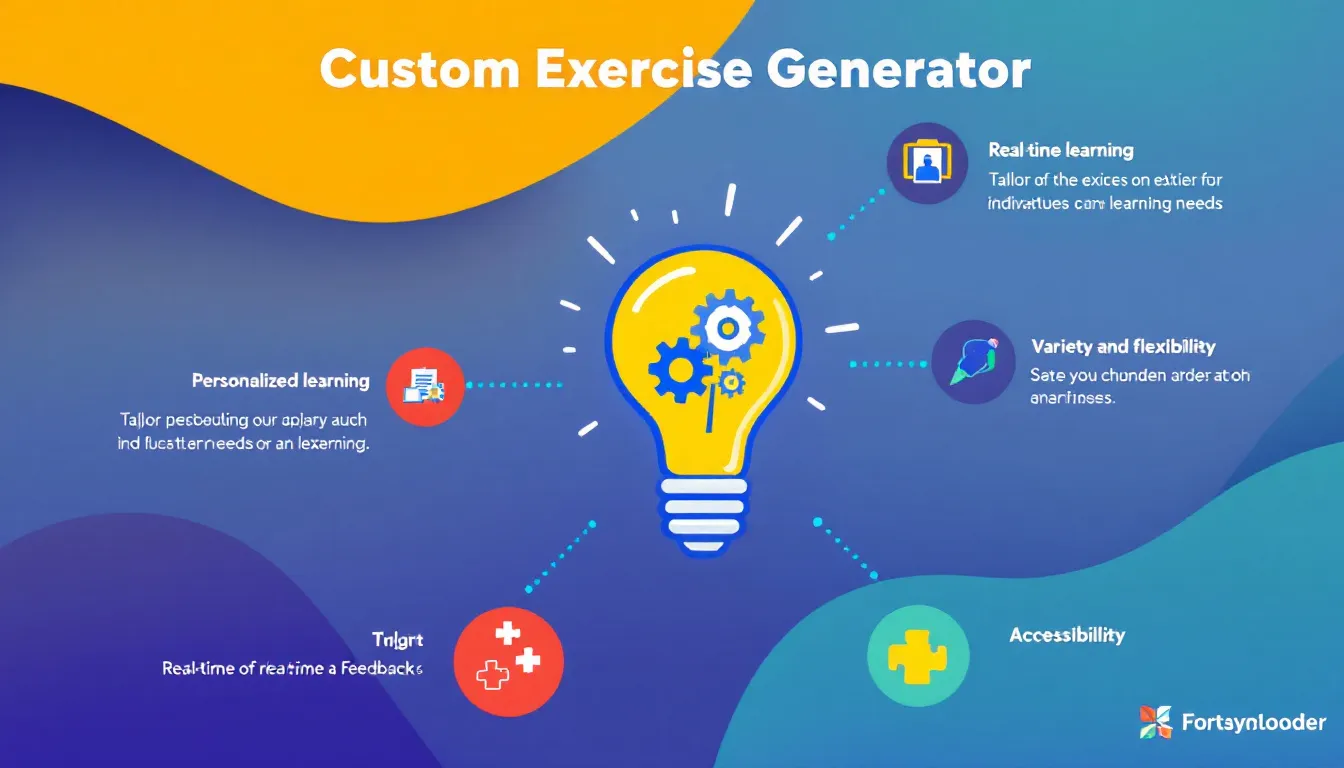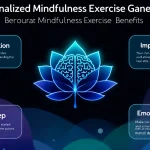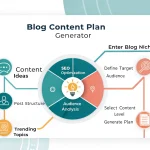Exercise Generator
Is this tool helpful?
How to Use the Exercise Generator Tool Effectively
Follow these simple steps to create customized exercises that fit your learning goals:
- Enter the Subject: Type the primary topic you want to practice. For example, try Environmental Science or Modern European History.
- Select Difficulty Range: Choose a level that matches your skill. Options include beginner, intermediate, advanced, or mixed to suit your learning pace.
- Set Number of Exercises: Specify how many exercises you want, from 1 to 10. For example, select 4 or 8 to control your workload.
- Add Specific Topics (Optional): Narrow your focus by listing particular areas within the subject, such as photosynthesis, ecosystems for Environmental Science or World War II, Cold War for Modern European History.
- Generate Exercises: Click the button to create your personalized exercises instantly.
- Review and Use: Read the generated exercises carefully. You can copy them for easy reference, study, or sharing.
Introduction to the Exercise Generator Tool: Tailor Your Practice for Better Learning
The Exercise Generator Tool helps you create custom exercises across any subject to boost your learning. It adapts to your preferences, creating practice problems that match your topic, skill level, and areas of interest.
Its purpose is to provide relevant and diverse exercises that make studying more focused and effective. Whether you’re trying to master a new skill, prepare for exams, or expand your knowledge, this tool supports your individual learning path.
Key Benefits You Gain from Using the Exercise Generator Tool
- Customized Learning Paths: Choose your subject, difficulty, and focus areas for exercises that match your goals.
- Wide Subject Coverage: Generate exercises in STEM fields, humanities, languages, and more.
- Adaptive Difficulty: Control challenge levels to stay motivated without getting overwhelmed.
- Endless Practice Opportunities: Create new sets anytime to continuously build skills.
- Time-Saving: Skip searching for exercises by generating relevant practice instantly.
- Active Engagement: Work on exercises that reinforce concepts and improve retention.
- Supports Diverse Learning Styles: Use different exercise types that suit how you learn best.
- Encourages Self-Assessment: Monitor your progress by tackling exercises tailored to your needs.
Practical Uses for the Exercise Generator Tool in Learning and Teaching
Here’s how you can apply this tool in everyday educational situations:
1. Supplementing Classroom Learning
Teachers can generate tailored assignments or practice sets that align with their lesson plans. For instance, a biology teacher might create exercises focused on cellular respiration or genetics to deepen students’ understanding.
2. Exam Preparation
Students preparing for tests can systematically practice by selecting exam topics and adjusting exercise difficulty based on progress, covering all necessary areas efficiently.
3. Language Skill Development
Language learners can generate grammar or vocabulary exercises. For example, a French learner might focus on verb conjugations or idiomatic expressions for targeted practice.
4. Professional Skill Building
Professionals can create exercises to prepare for certifications or improve job-related skills, such as coding challenges for developers or financial analysis problems for accountants.
Example Usage Scenarios Demonstrating the Tool’s Flexibility
Scenario 1: Preparing for a Biology Quiz
- Subject: Biology
- Difficulty Range: beginner
- Number of Exercises: 6
- Specific Topics: cell structure, photosynthesis, human anatomy
The tool might generate exercises like:
- Describe the main functions of the mitochondria in a cell.
- Explain the process of photosynthesis in plants.
- Label the major parts of the human heart and their functions.
- Compare plant and animal cells regarding their components.
- Identify the role of chlorophyll in energy conversion.
- List the steps of blood circulation in the human body.
Scenario 2: Studying American Literature
- Subject: American Literature
- Difficulty Range: intermediate
- Number of Exercises: 4
- Specific Topics: Harlem Renaissance, poetry analysis
The exercises might include:
- Analyze themes in Langston Hughes’ poem “Mother to Son.”
- Discuss the significance of the Harlem Renaissance in American cultural history.
- Compare the writing styles of Zora Neale Hurston and Claude McKay.
- Interpret symbolism found in Countee Cullen’s poetry.
Important Disclaimer
The calculations, results, and content provided by our tools are not guaranteed to be accurate, complete, or reliable. Users are responsible for verifying and interpreting the results. Our content and tools may contain errors, biases, or inconsistencies. Do not enter personal data, sensitive information, or personally identifiable information in our web forms or tools. Such data entry violates our terms of service and may result in unauthorized disclosure to third parties. We reserve the right to save inputs and outputs from our tools for the purposes of error debugging, bias identification, and performance improvement. External companies providing AI models used in our tools may also save and process data in accordance with their own policies. By using our tools, you consent to this data collection and processing. We reserve the right to limit the usage of our tools based on current usability factors.







